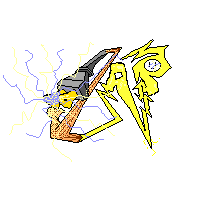Not all games communicate values but of the ones that do some do it in a more subtle manner than others.
2 hours ago, fleabay said:As sexist and racist as Postal 2 was, it never communicated values.
The suffix "ist" denotes perpetuating demeaning or discriminatory ideas. It is impossible for any work to convey those two things in the content of your work and not communicate any values. You may see them as neutral values if they are ones you share, kind of like how no one thinks they have an accent, but that still doesn't change the fact that it is attempting to communicate a world view. The content doesn't have to overshadow the game either, FFVII has a very environmentalist message and even puts you in charge of what are essentially a rag-tag group of eco terrorists fighting a corporation that runs the world and powers war machines by sucking the lifeblood from the planet, hamfisted writing at its finest with almost no major breakthroughs in game play other than being fully 3-d at a time when that was a novelty, everyone just remembers it for cool hair, big swords and chocobo races, no one cites it as shoving an environmentalist message down their throat. Pac-Man and Minecraft communicate almost no values via game play or mechanics, I agree with you there and they are both what I would consider some of the greats, but they have little to no story. The more you write the more the world view of the author will be reflected and everyone has opinions and values and those will come through via your writing.
That being said I don't think that "what values were the creators communicating in this game" is a good question for a game design class, maybe something like a video games as art class where you did literary critiques of video game stories or something. Basic games you want to start out teaching have little to no story and thus little to no representation beyond whatever visual assets are used. The medium is still finding recognition as a legitimate form of art so good on you for teaching this class and legitimizing it in an educational setting, but I feel class time would be better used to teach techniques used in game development, possibly ones that arose out of system limitations and have an interesting history behind them, nuts and bolts type stuff.








